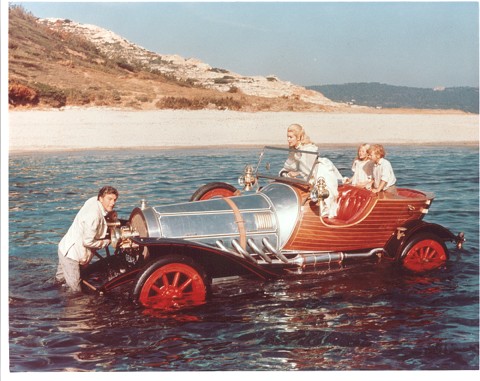Humans have always been fascinated by the idea of being able to fly because we are so earthbound. But watching birds take off and fly offers science a few ideas for how we might do the same. Just as birds, insects and other animals can walk and fly, there is potential for a flying machine that works efficiently on the ground and in the air.
The typical flying car is usually a car with wings but ground vehicles tend to be slower and more cumbersome than drones. Drones, while fast and agile, cannot manoeuvre on the ground at all. Another concern is battery life, which is longer for a vehicle on the ground than one keeping itself in the air.
Drones fly and drive
Researchers at MIT designed a system of eight quadcopter (four rotor) drones with two small motors on the wheels. Using algorithms to set their path, they could fly and drive through a simulated city environment with landing pads, parking spots and no-fly zones. Before batteries ran out:
- Robots could fly only 90m
- They could drive only 252m
- Robots that drove and flew could fly only 300 ft.
From these results, MIT reasoned driving is more efficient than flying. The gain from driving more than offsets the small efficiency loss caused by flying with the extra weight of wheels.
Big potential
Defence organisations are often first to explore flying machine technology. In 2013 Wired reported a new multimodal vehicle that could transform itself for different terrains. Wings became fins, underwater paddles became wheels, wheels could jump 10m into the air, and so on. The operator did not even need to be present to manoeuvre it.
Drones that fly and drive could potentially go into more remote construction areas or disaster zones or navigate tight spaces to transport objects or rescue people. Or they could just help us get through morning traffic on the way to work.
Buy one
Geely, the Chinese carmaker is making a sizeable investment in Terrafugia, a US firm, with the aim of selling the world’s first flying car in 2019. It also wants to market the world’s first vertical take-off and landing flying car by 2025.
Anyone with $779,000 to spend might consider investing in a Pal-V Liberty, the flying car shown at Geneva. It can transform from a car to a plane in only 5-10 minutes, which you can fly in Europe with a recreational or private pilot licence. There are only 90 available so you had better – fly.
For more on our dream of the flying machine, see our other blog, Flying cars – pigs might fly.


your opinion matters: